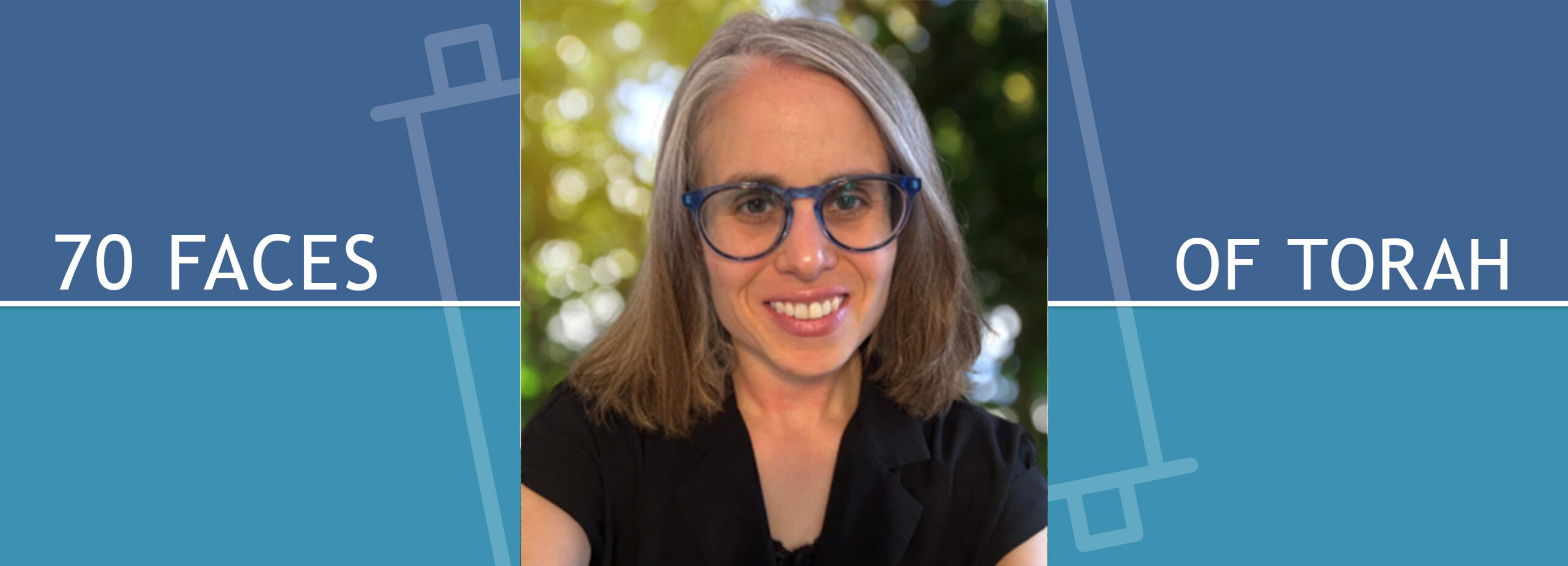Deuteronomy On Attending to Rain

Parashat Eikev Deuteronomy 7:12-11:25
It rained nearly every day at camp in the Poconos Mountains last month. Sometimes a drizzle, sometimes a storm—and every time it rained, I marveled. Having spent nine months in Israel this past year, rain ended by February. I was yearning for a rainstorm to break the humidity in Tel Aviv this past June. But it never fell.
I’ve had a fascination with rain since I first learned the middle paragraph of the Shema, which is found in this week’s parsha, Parashat Eikev1. The way rain works, according to these verses, is simple: it is a blessing from God, and comes when the people observe God’s commandments. Failure to observe the commandments leads to drought, a lack of food, and concludes with eviction from the land. I imagine the Israelites, who only knew desert life and miraculous food through manna, this is a significant and potentially terrifying change.
Before introducing these details of how rain works, Moshe describes how God will relate to the Land of Israel, as constant and exacting2:
וְהָאָרֶץ אֲשֶׁר אַתֶּם עֹבְרִים שָׁמָּה לְרִשְׁתָּהּ אֶרֶץ הָרִים וּבְקָעֹת לִמְטַר הַשָּׁמַיִם תִּשְׁתֶּה־מָּיִם׃
אֶרֶץ אֲשֶׁר־ה׳ אֱלֹהֶיךָ דֹּרֵשׁ אֹתָהּ תָּמִיד עֵינֵי ה׳ אֱלֹהֶיךָ בָּהּ מֵרֵשִׁית הַשָּׁנָה וְעַד אַחֲרִית שָׁנָה׃
But the land you are about to cross into and possess, a land of hills and valleys, soaks up its water from the rains of heaven. It is a land which your God looks after, on which your God always keeps an eye, from year’s beginning to year’s end.
I imagine that these verses would have compelled the Israelites to try to live according to the Torah. I no longer expect to see Divine communication playing itself out as clearly as our parsha suggests. But sometimes I yearn for it—for clarity and encouragement in a messy, imperfect world.
And yet, coming back to these verses as a contemporary reader, currently outside the Land of Israel, I grapple with its message. Does God uniquely attend to the Land of Israel? And if so, what does that mean for God’s attention everywhere else?
The 3rd century Midrash Sifrei3 is also troubled by this text. The midrash cites other verses in Tanach that affirm God’s attention to lands and people beside Israel. And the midrash concludes with the following claim:
ומה תלמוד לומר ארץ אשר ה’ אלהיך דורש אותה?
כביכול אין דורש אלא אותה—ובשביל דרישה שדורשה, דורש כל הארצות עמה
What is the intent, then, of “a land which the L-rd your G-d inquires after”?
It is as if He inquires only after it. But because He inquires after it, He inquires after all the other lands along with it.
Without explaining precisely how it works, the midrash suggests that God’s ability to see other lands is an extension of God seeing the Land of Israel. By making this claim, the midrash expands God’s concern. Deep awareness of a particular people does not close off God from seeing others. In fact, deep concern for one people is what allows God to expand God’s consciousness.
It is through lingering on this midrash that I gain more insight into my own relationship to my people and Israel. Because I did have the blessing of spending nine months in community with resilient, loving, and stubborn Israelis. And yet there were many people in the region I did not come to know and see nearly as closely. I did not know many Palestinians, Gazans, or foreign workers in the land. Over and over I must remind myself, knowing and loving one people need not exclude me from knowing and loving others. In this year where it seems like all global eyes have been on Israel, all of us can expand from our myopic seeing, growing our capacity to know and respond to the other.
One day in early November of this past year, I struck up a conversation with an Israeli retiree named Tzvika, whom I encountered in San Simon Park in Jerusalem. Each of us was on our way to class—me, a rabbinical student on the way to Talmud; him, a Jewish Israeli retiree, to his Arabic language class. “We wondered whether to continue the class since the war began,” my new friend shared. “But we decided that now was the most important time to stay open, to continue progressing toward our goal of having fluent spoken Arabic, so we can communicate with our neighbors in their own language. And we decided that there is no other choice. We have to continue.”
Thinking about the encounter now, I realize that the only reason I met Tzvika was that we were both sheltering under a tree after a sudden rain. I can’t help but think of it as a Divine wink.
1Deuteronomy 11:13-21
2Deuteronomy 11:11-12
3Sifrei 40
Deborah Anstandig is a 5th year Rabbinical Student at Hebrew College. Deborah spent this past year learning and taking deep breaths in Jerusalem, and walking on the shores of the Mediterranean Sea in Tel Aviv. She is currently serving as the Hebrew College Rabbinic Intern at Temple Emunah, and loves studying the Torah of life through swimming, singing in choirs, and walking the loop at Walden Pond.
Learn more about Hebrew College’s rabbinical program at Ta Sh’ma (Come & Hear), our prospective student Open Houses (in-person November 18 & virtual December December 8).


